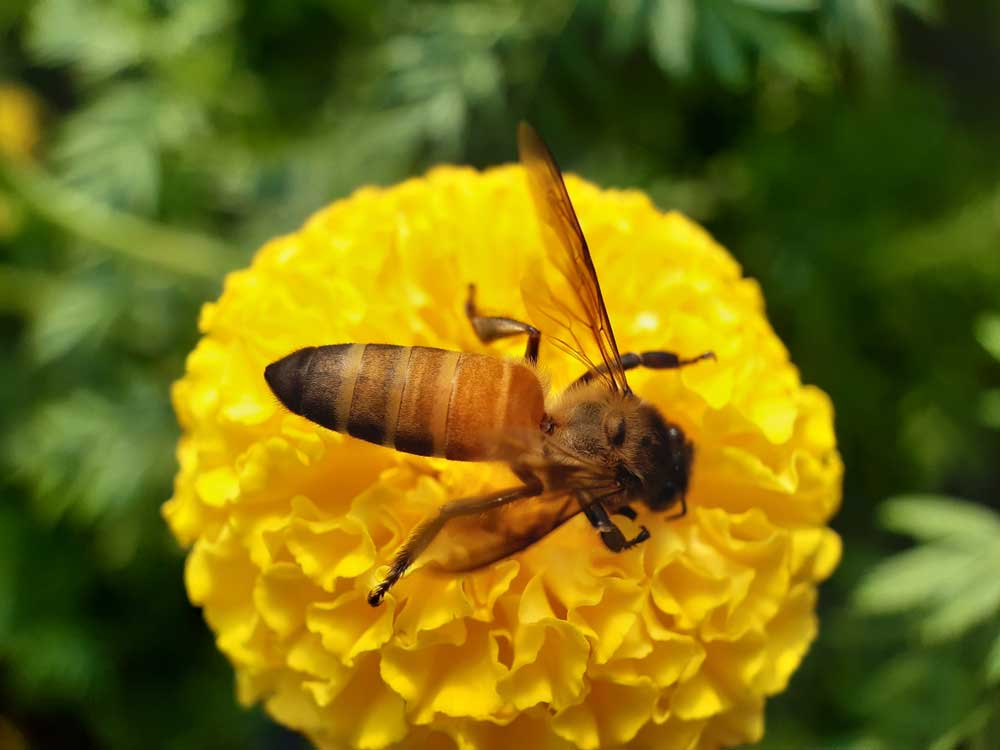Bengal’s sweet tooth has been taken care of but its sting has been forgotten.
A sting in the tale has emerged towards the tail-end, presumably, of the lockdown: colonies of bees have been going without their staple diet because their keepers cannot venture into the seasonal feeding ground in the wild.
During this time of the year, the bees usually feed on the nectar from wild flowers in bloom in the Sunderbans, which draws beekeepers and their wooden hives from places such as Basirhat in North 24-Parganas.
Hemmed in by the lockdown, the beekeepers have tried to feed the emaciated insects sugar syrup which, they say, is not a viable option because of the cost. The keepers are in any case strapped for cash as customers have not paid them for earlier consignments of honey — again because of the lockdown.
The beekeepers say at least 50kg of sugar is required daily for every 100 hives — the minimum that each keeper owns. Most beekeepers have more than 100 hives and the burden of buying sugar daily is becoming too much to bear, they say.
Swayed by the plight of dairy farmers and cows, the Bengal government had allowed sweet shops to open for limited hours during the lockdown so that milk could be used up.
But the bees of Bengal, the providers of sweet honey, had remained under the radar.
Now, the beekeepers are urging the government to allow them to travel to the Sunderbans along with their wooden hives so that the starving bees can feed on nectar.
“Many flowers bloom in the Sunderbans during this time of the year. So if we are allowed to travel, the bees, as well as us, can be saved. The bees are dying every day,” says Bimal Das, a beekeeper in Haroa, North 24-Parganas.
So far, the district police administration has turned down their request on the fear that social-distancing norms will not be maintained in the wild. No outsider will be allowed to enter the Sunderbans during the lockdown, officers of Hemnagar Coastal and Hingalganj police stations have made it clear.
Had the bees been in charge, the administration would have had no cause for worry. Known for their discipline, the bees are released in the flower orchards and forests — they suck nectar and dutifully return to the hives.
What happens then is a master class in supply chain management: a honey bee stores the nectar in a sac, or a second stomach, until it returns to the hive and transfers the nectar to the worker bees. During the transfer, enzymes get added to the nectar before it is stored in the honeycomb, from where honey is extracted.
In Bengal, at least 60,000 beekeepers farm large colonies of bees in North and South 24-Parganas, East Midnapore, Nadia, East Burdwan, Bankura, Hooghly, Purulia and Malda.
Das, the beekeeper, says: “The bees survive on nectar. Throughout the year, we take bees across the state, depending on the flowering season. In November-December, we take the bees to Nadia for them to feed on the nectar of mustard flowers, while in February-March we take them to Malda when mango trees flower. If this routine is disrupted, it becomes tough to keep the bees alive, as has happened because of the lockdown.”
“We were scheduled to go to the Sunderbans in the last week of March because it’s time for the kewra and some other wild flowers to bloom. But the lockdown has derailed our plan and put the bees at risk,” he says.
Since the beekeepers could not go anywhere, a huge number of bees are dying in the absence of nectar, the beekeepers say.
Ratnakar Das, another beekeeper, says: “I need at least Rs 3,200 daily to buy 75kg of sugar to feed the bees as I have 150 hives. But it is an impossible task. I had to sacrifice 50 hives, incurring a loss of Rs 1 lakh.”
Das, who had 200 hives, says he has had to let bees in 50 hives starve to death. “Nevertheless, I have been trying to keep the others alive, investing my personal savings,” he says.
“At present, we have no option, but to rush to the Sunderbans to save the bees that are still alive. We have no money to buy sugar. Many companies are yet to clear our dues. We had urged the administration to allow us to go to the Sunderbans, but they have turned down our plea,” Das adds.










